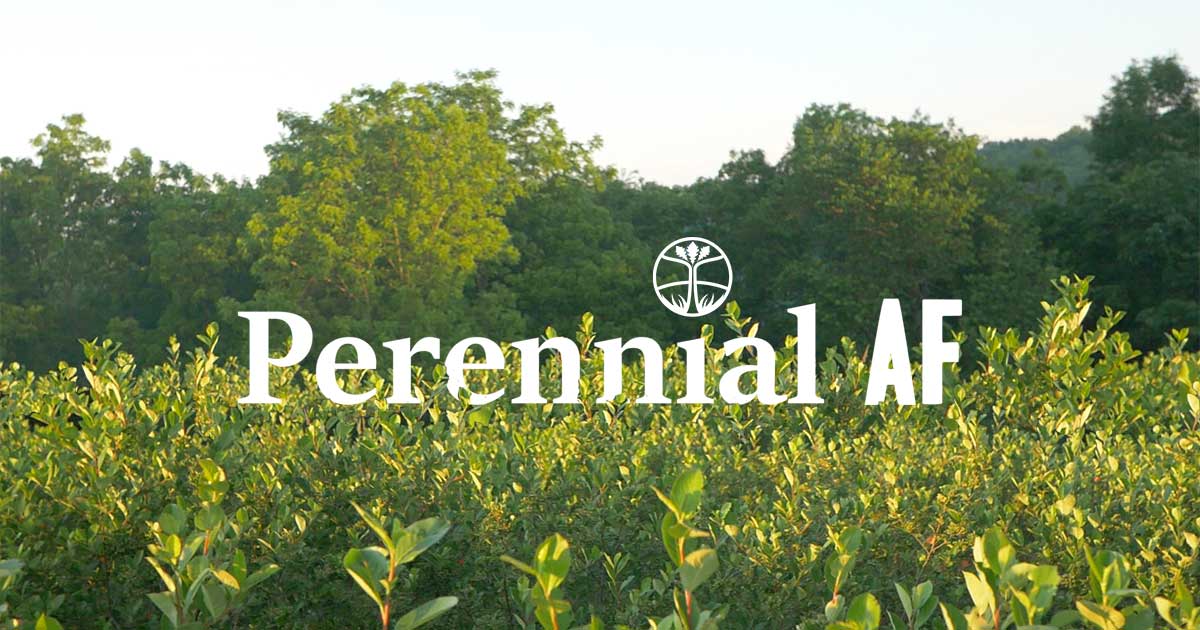Welcome everyone to Perennial AF, a podcast and blog published by the Savanna Institute.
I’m your podcast host, Jacob Grace.

A few months ago, I got to talk to Eric Wolske, a former Savanna Institute employee who is now working for Canopy Farm Management, a tree planting business started by the Savanna Institute and its partners. We’ll talk more about it in this episode of Perennial AF.
Eric recently received a PhD for his agroforestry work at the University of Illinois, and he was part of the network of students, researchers, and farmers there that helped form the Savanna Institute nearly ten years ago. Eric loves “booze crops” as he calls them, particularly black currants, and he’s an experienced drone pilot who has used unmanned aerial vehicles for some of his research and agroforestry work.
When I talked to Eric, he was calling in from the field, taking a break from working at the Savanna Institute’s agroforestry demonstration farm at Allerton Park in central Illinois. He was also in the midst of purchasing a lot of new machinery and equipment for Canopy Farm Management.
Here’s our conversation, edited for length and clarity.
Jacob: How did you get into agroforestry?
Eric: Both my grandparents did forms of farming. Growing up in central Illinois, we have THE best soil in the world. But I realized we’re not really doing a great job of protecting that soil. And that was pretty disheartening. So after I graduated I went into the vineyard industry, but also felt like that was still kind of lacking. So that brought me to the University of Illinois where they were doing this agroforestry research. My interest at the time was in booze crops. Grapes, apples…things we could turn into cider and wine. I still ferment a lot of plants that I grow.
Jacob: I know you’re a fan of black currants…
Eric: Black currants are in that superfood category. They’re just a very healthy berry to consume.
My first year growing currants was probably 2016. Before that it was mainly just grapes.
Black currants in particular for jam are terrific. They already have very high pectin content. You want a nice dark colored berry when you harvest them. People tend to harvest them a little too early. If people are interested in fermenting black currants, I recommend making Crème de cassis. It’s pretty simple to make and the flavor is great.
Jacob: So you’re looking into new agroforestry equipment right now?
Eric: We’ve been doing very traditional tree planting for the past hundred years, where the same machines have been planting the same way. And you look around and you see this fancy John Deere driving itself, and we’re out here with the same tech they’ve been using since the twenties, and it seems like we could be doing a little more to make our jobs easier!
Using some of these newer technologies we can help reduce our inputs and also still have very healthy plants, which has always been a very difficult thing – you kind of sacrifice one for the other. And some of these newer options really help with that.
We don’t need to reinvent the wheel for a lot of this stuff. You know – a mower is a mower. At the same time…we are getting a lot of [machinery] in from Europe … to help reduce the back-breaking labor that this farming can be.
I’ve done a lot of hand labor in my career of agroforestry, and I’m used to spending days with a weed whacker just cleaning my plants up. And to think that while I’m mowing, it’s doing that whole weed whacking pass at the same time, I still just can’t quite wrap my head around that being feasible. It still seems a little unbelievable.
With the shaker harvesters with a nice little catchment system, we reduced our labor [harvesting currants] from over a hundred hours per acre to around 17 hours per acre. And with the pull-behind harvester we were able to get that down to four. You can definitely see where the costs come into play on that front.
Shakers save you so much time compared to hand harvesting. And they save your back. They save your body. They save your hands. And so you can harvest longer, you can harvest more, and you don’t go home and cry in the shower because you’re so broken. (Laughs)
Jacob: So you worked briefly at the Savanna Institute, but now you’ve transitioned over to Canopy Farm Management. Can you tell us about this new business the Savanna Institute helped launch?
Eric: We are an agroforestry farm management company. So we are tree establishers. We don’t just plant the trees, we make sure they actually grow.
We can do everything from just helping [clients] get things planted and let them manage them the rest of the way, all the way to us just taking over full operations – management and maintenance and harvest and processing – all that stuff.
Our goal is to hit a lot of these bottlenecks that are in agroforestry. So one of them is management and maintenance: the planting side of it. We have a nursery now…we’re trying to hit the bottleneck of not having enough plants out there.
In my career so far, I’ve killed a lot of trees. The expectation is that they should just grow. That’s not the case. We have deer that come through and eat them. We have random diseases that love to pop up. The weeds love to choke out the trees. We’re all very much looking forward to seeing these gains and efficiencies as we kind of modernize something that we’ve been doing with 1920s technology.
Show Notes
Creme de cassis Recipe, Imbibe Magazine.
Quick black currant jam Recipe, Berry World
Become a drone pilot, FAA
Approved Unmanned Aircraft Systems – Collegiate Training Initiative (UAS-CTI) Schools, FAA
Elderberry Grower Resources, Savanna Institute
School of Integrative Biology, University of Illinois
Yoga for Farmers: Farm Worker Repetitive Motion Injury Workshop with Lana Heintjes, Cornell Cooperative Extension of Ulster County’s Agriculture Program

